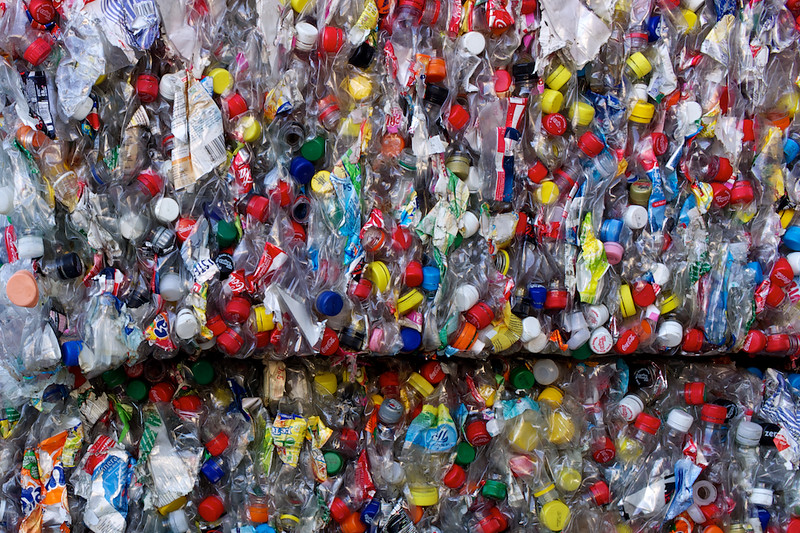
Photo by Mbeo | Creative Commons
By Emily Davis, Secretary/Treasurer of the Southeastern PA Group
I feel like I got duped into the idea of recycling plastic – and to feeling less guilt when I bought yogurt in #5 containers, etc. Now I learn that, once again, a corporate voice has misled me. The plastics manufacturing industry promoted recycling, provided financial support to municipalities that set up recycling and even created the idea of putting the plastic number inside the recycling symbol. They did this knowing that plastics were very difficult to recycle and that most plastic, if reused, would be down-cycled. We need to re-think the whole idea of recycling and make manufacturers responsible for the materials they use and the products they make from the beginning to the end of the product. Perhaps we need to move from “Reuse, Reduce, Recycle” back to “Use it Up, Wear It Out, Make Do or Do Without.” We must shift the responsibility from the consumer to the corporation.
Of course, this isn’t the first time we consumers have been duped by corporations. They tell us their products are healthier. They make us think people will think we are better, or cooler, if we use their product. Now they are even trying to tell us their products are environmentally friendly. Maybe sometimes they are telling the truth, but often they are not. They know mostly we are not going to check up on them or even think about the life of a product from creation to disposal.
I have a long history with recycling – longer if I include collecting beverage bottles (all glass) for the return deposit as a child. I started recycling household “wastes” in 1970 when I was required not only to wash materials, but to flatten bi-metal cans, remove metal rings from soda bottles, remove labels from everything and sort the materials. I then had to take those materials to a special location that had containers for clear glass, brown glass, green glass, blue glass, bimetal cans, aluminum cans, and newspaper. There was no plastic recycling, but not so much plastic either – plastic shopping bags and soda in plastic bottles didn’t come on to the scene until the late 70s. In Philadelphia in the late 80s, I minded a corner in the block corner recycling program and we were still sorting materials. My recycling of plastics began with 1s (PET) and 2s (HDPE), which I took to specific places where volunteers (including me) inspected the donations and sorted them. One factor convincing the municipalities to collect recyclable materials was that the materials could be sold, creating income for the city while decreasing the costs at landfills. In fact, when curb-side pickup started, aluminum cans were valuable enough that scavengers would come by on recycling day and pick the aluminum cans out of blue buckets put out for the Philadelphia collection trucks. Now almost all of the materials collected for recycling end up in a landfill or being incinerated. With no volunteer checking, most materials put out for recycling are too contaminated to recycle. Most of the plastic beverage containers that are “recycled” come from the ten states that have bottle return laws.
In a previous article, I spoke personally about trying to move away from single-use plastic. The COVID-19 pandemic has made this more difficult. Most markets have eliminated the bulk purchase option. Some markets where I was able to ask the person weighing out a purchase to use a bag I brought in, will not do it anymore. So, we cannot make it only the responsibility of the consumer to reduce plastic consumption, we need to make product manufacturers responsible. But, where to start? We will have to work very hard to legislate State-wide restrictions on single-use plastics such as bags, utensils or Styrofoam containers since the leadership in the Pennsylvania legislature is not likely to change much in 2021. Local actions like the plastic bag bans passed in Philadelphia and West Chester, and in place in Narberth are a better option. I still like the idea of a bottle return bill. The bottle return bill is an old idea which has been successful since Maine passed one in 1990 – they have even expanded it. State Rep. Wendy Ullman from Doylestown and State Senator Sharif Street from Philadelphia introduced one in the current legislature. Maybe we can try again in 2021. Anyone have any other ideas?
This blog was included as part of the 2021 Winter Sylvanian newsletter. Please click here to check out more articles from this edition!